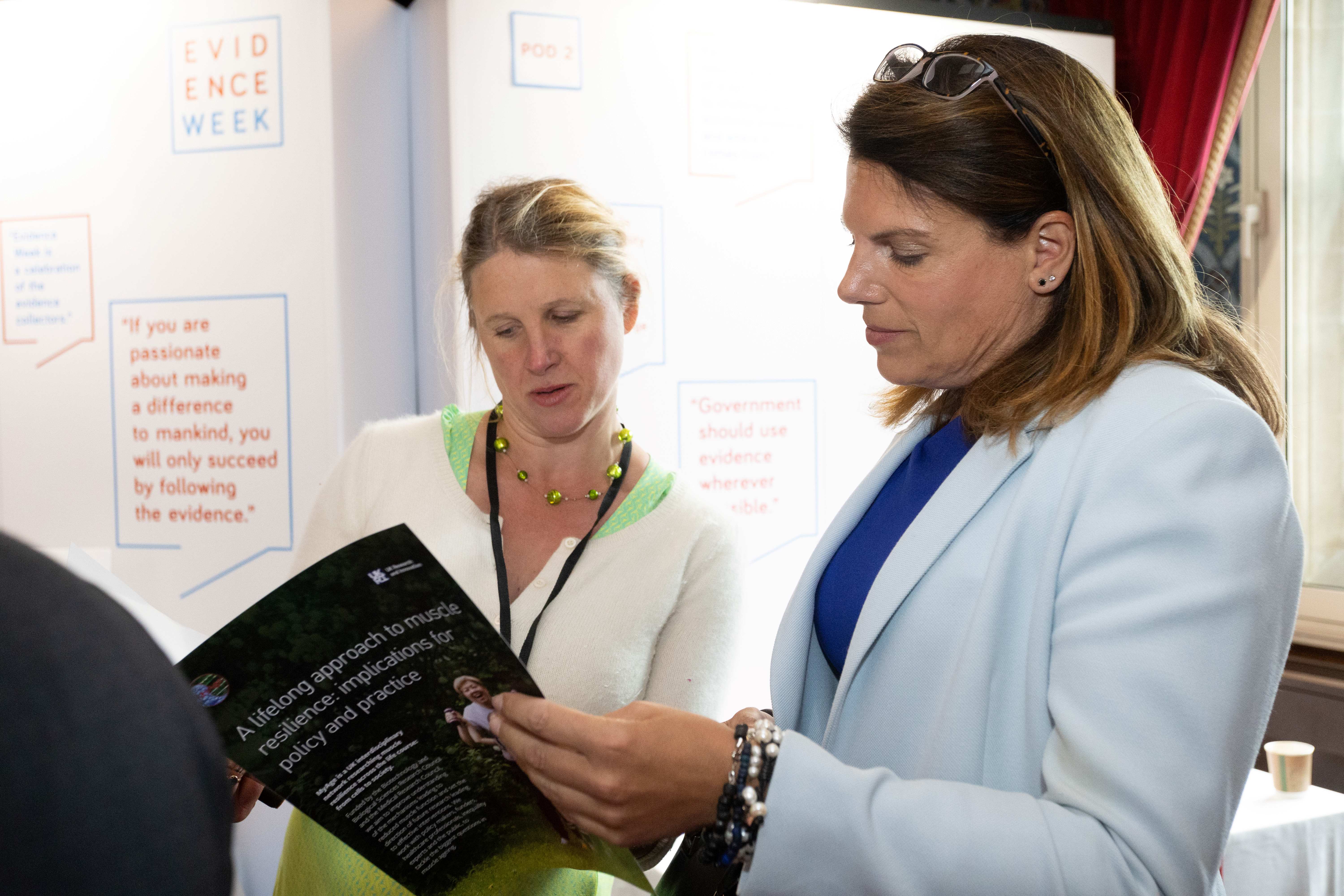Building muscle resilience throughout life reduces ill health

MyAge met with Members of Parliament and Peers in Westminster to present their policy recommendations. Their recommendations were informed by expertise from the MyAge network and wider research community. This was part of Evidence Week which equips parliamentarians with evidence-based recommendations to inform the decisions they make on future policies.
The MyAge Research Network, led by Professor Peter JS Smith from the University of Southampton Institute for Life Sciences and Co-Director Professor Carolyn Greig from the University of Birmingham has published a new evidence briefing, ‘A lifelong approach to muscle resilience: implications for policy and practice’.
This explains that building muscle throughout the life course may reduce growing inequalities and the economic burden of health and social care resulting from an ageing population. The MyAge team is promoting a holistic approach to addressing these pressing challenges.
Dr Alan Whitehead, the MP for Southampton Test since 1997 said:
“It was fascinating to hear how taking good care of our muscles can have such a positive impact on so many of the big health challenges we face – at an individual and population level. I strongly support taking these beneficial steps based on our world-class research to build a healthier future in the UK and tackle the huge health inequalities we face.”
Rt Hon Caroline Nokes, MP for Romsey and Southampton North in Hampshire added:
"Throughout my parliamentary career, I have worked hard to champion equality and fairness. So it was interesting to hear how a better understanding of sex differences in muscle resilience research has the potential to improve many aspects of people's health, for example during the menopause and musculoskeletal health in later life. This is an important and neglected area of research, so it's great to hear what MyAge is doing to recognise and address historical funding inequalities."
The number of people living longer than 65 is expected to increase by more than 40% within 20 years. But adults in the UK, particularly women, often spend the last decade of life in poor health.
The loss of muscle mass and function in later life is:
- a leading cause of loss of independence in later life and can lead to impaired mobility, falls
and is also linked to type 2 diabetes - increasing the risk of cardiovascular disease, loss of cognitive ability and neurological
disorders - poor musculoskeletal health is also a leading cause of adults leaving the workforce early
The effects of muscle loss are not experienced evenly across society, because sex and social environment strongly drive health inequalities in ageing.
Josie Gray, MyAge Communications and Outreach Manager from the Institute of Life Sciences at the University of Southampton explained:
“Our recommendations impact on many important areas of health and social policy – such as giving children a healthy start, helping to retain adults in the workforce and reducing disability in later life. It was insightful to speak with a wide range of parliamentarians about the evidence and to discuss cost-effective solutions. We’re really pleased with the level of engagement by MPs and parliamentary staff and have learnt a great deal.”
MyAge is a network of over 100 members, most of whom are academic researchers. We advocate a preventative mindset in muscle development. Counteracting muscle loss at key stages will yield important benefits:
- during childhood development and adolescence to improve physical and mental health
- during adulthood to reduce sickness absence, enhance productivity and retain people in the workforce
- into later life to reduce frailty-associated ill health and retain greater independence in old age
For further information please visit the MyAge Contact page.
About MyAge
MyAge is a national interdisciplinary network researching muscle resilience across the life course: from cells to society. Funded by the Biological Sciences Research Council and the Medical Research Council, we aim to improve understanding of the mechanisms leading to reduced muscle function and set the direction of future research leading to effective interventions. We work with policy makers, funders, healthcare professionals, inequality experts and the public, to tackle the biggest questions in muscle ageing. Please see our news pages or folllow @MyAgeNetwork on Twitter and LinkedIn.
About Evidence week
Evidence Week, now in its sixth year, is run by the campaigning charity Sense about Science and the Parliamentary Office for Science and Technology (POST), in partnership with the House of Commons Library, House of Lords Library, Ipsos, the Office for Statistics Regulation and researcher institutions from across the UK. During the week, MPs meet with leading scientists to get the latest insights on pressing issues covering topics as varied as housing, food supplies, energy, health and inequality. It is an opportunity for the public, parliamentarians, and researchers to come together to share knowledge and insights. It empowers legislators to engage with evidence and equips them with the critical tools to handle uncertainty, identify bias and scrutinize underlying assumptions.
About Public Policy Southampton
Public Policy Southampton (PPS) is the University of Southampton’s dedicated unit to help researchers connect with policymakers through fellowship programmes, capacity building and engagement activities to better support evidence-informed policymaking.